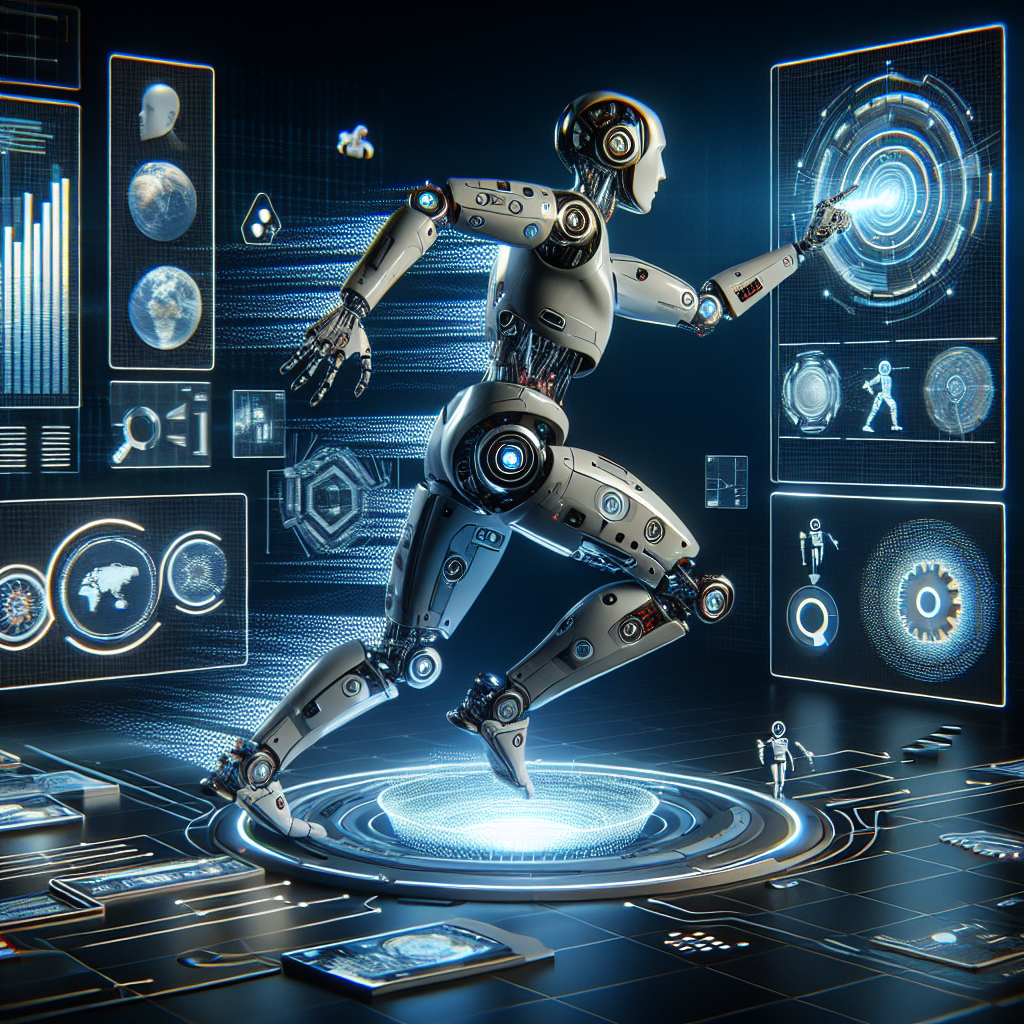From Sci-Fi to Reality: How AGI Is Reshaping the Future
Artificial General Intelligence (AGI) has long been a staple of science fiction, often portrayed as sentient machines capable of outsmarting humans and potentially posing a threat to humanity. However, in recent years, AGI has made significant strides in becoming a reality, with researchers and developers working tirelessly to create machines that can not only think and learn like humans, but also surpass them in many ways.
In this article, we will explore the current state of AGI technology, its potential impact on various industries, and the ethical considerations that come with creating machines that can rival human intelligence.
The Rise of AGI
AGI, also known as strong AI, is a type of artificial intelligence that is capable of understanding and learning any intellectual task that a human can. This is in contrast to narrow AI, which is designed to perform specific tasks, such as playing chess or driving a car. While narrow AI has made significant advancements in recent years, AGI has remained elusive due to the complexity of human intelligence.
Despite the challenges, researchers have made significant progress in developing AGI. One of the key breakthroughs in this field is deep learning, a subset of machine learning that uses neural networks to model and simulate the human brain. This has allowed machines to process vast amounts of data and learn complex patterns, leading to advancements in speech recognition, image recognition, and natural language processing.
Another important development in AGI is reinforcement learning, where machines are trained to make decisions based on feedback from their environment. This has led to breakthroughs in areas such as robotics, where machines can learn to perform tasks by trial and error, much like a human would.
The Impact of AGI
The potential impact of AGI on society is immense, with the technology poised to revolutionize many industries and change the way we live and work. One of the most significant areas where AGI is expected to make a difference is healthcare. With the ability to analyze vast amounts of medical data and identify patterns that humans may miss, AGI has the potential to revolutionize diagnosis and treatment, leading to better patient outcomes and more personalized care.
In addition to healthcare, AGI is also expected to have a major impact on transportation. Self-driving cars, powered by AGI, have the potential to reduce accidents and congestion, while also making transportation more efficient and accessible. This technology could also revolutionize logistics and supply chain management, leading to faster and more reliable delivery of goods.
The entertainment industry is another area where AGI is expected to make a significant impact. With the ability to create realistic characters and immersive worlds, AGI has the potential to revolutionize gaming and virtual reality, providing users with experiences that are indistinguishable from reality.
Ethical Considerations
While the potential benefits of AGI are clear, there are also significant ethical considerations that must be taken into account. One of the major concerns surrounding AGI is the issue of control. As machines become more intelligent and autonomous, there is a risk that they may act in ways that are harmful to humans. This has led to calls for the development of ethical frameworks and regulations to ensure that AGI is developed and used responsibly.
Another important ethical consideration is the impact of AGI on the job market. As machines become more capable of performing tasks that were once done by humans, there is a risk of widespread job displacement. This has led to calls for policies that support workers who may be affected by automation, such as retraining programs and universal basic income.
FAQs
Q: What is the difference between AGI and narrow AI?
A: AGI is a type of artificial intelligence that is capable of understanding and learning any intellectual task that a human can, while narrow AI is designed to perform specific tasks, such as playing chess or driving a car.
Q: How close are we to achieving AGI?
A: While significant progress has been made in developing AGI, researchers believe that we are still several years away from creating machines that can rival human intelligence in all aspects.
Q: What are the potential risks of AGI?
A: Some of the potential risks of AGI include loss of control, job displacement, and ethical concerns surrounding the use of intelligent machines.
In conclusion, AGI has the potential to revolutionize many aspects of society, from healthcare to transportation to entertainment. While there are significant ethical considerations that must be taken into account, the benefits of AGI are clear, and the technology is likely to play a major role in shaping the future. As researchers continue to make advancements in this field, it is important that we approach the development and use of AGI responsibly, ensuring that the technology is used to benefit society as a whole.

